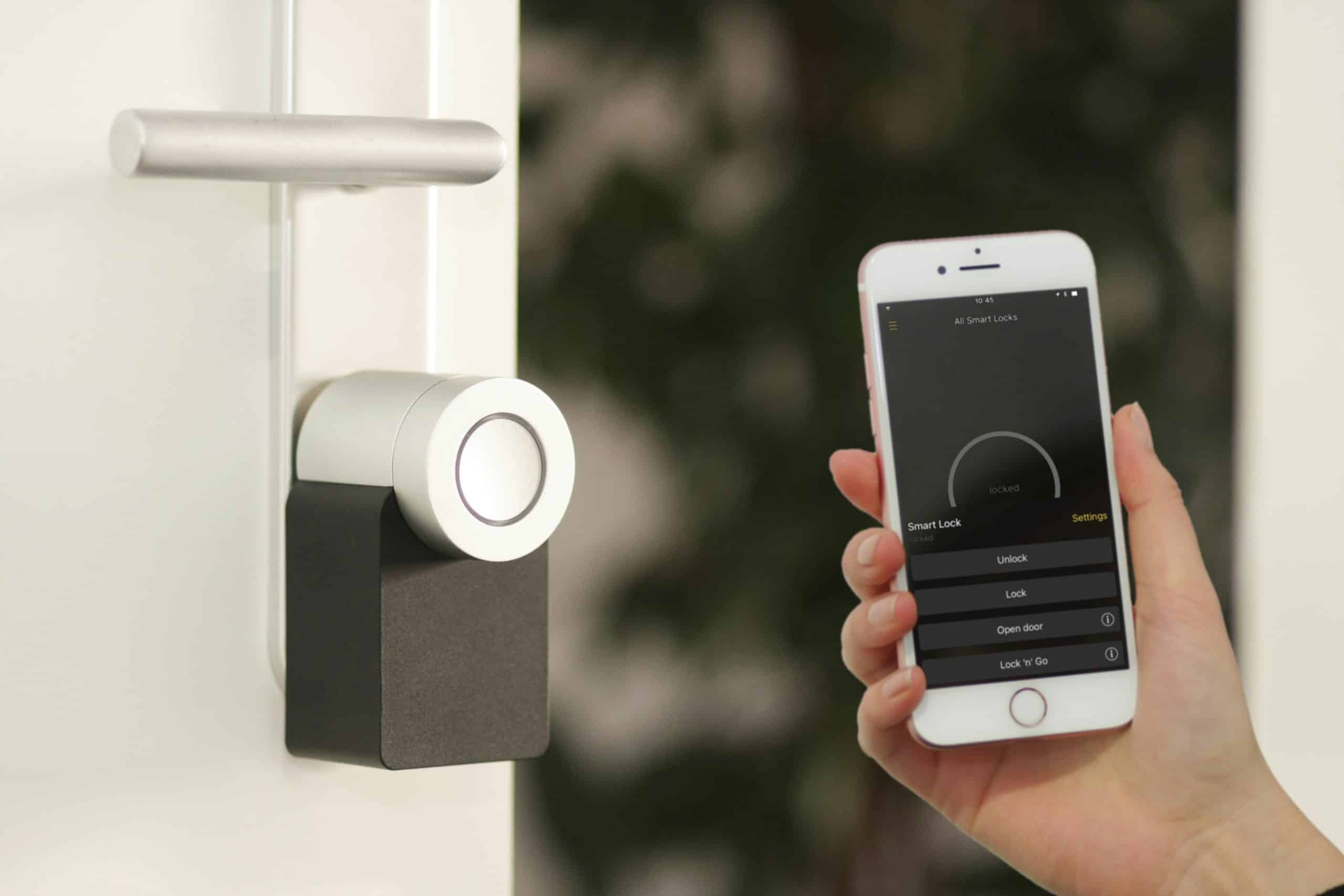In the era of digital transformation, the way we live is rapidly changing. As technology evolves, we are witnessing the rise of interconnected smart devices and internet of things (IoT) technologies. These advancements are, in turn, revolutionizing the concept of homes, making them ‘smarter’ than ever. From energy-efficient appliances to automated control systems, the digital revolution is reshaping our homes into hubs of artificial intelligence and IoT.
The rise of smart home technology
As we delve into the world of smart homes, it’s essential to understand the core elements driving this sea change. The concept of smart homes hinges on two critical advancements in technology: the Internet of Things (IoT) and Artificial Intelligence (AI). Together, these technologies are transforming ordinary homes into intelligent ecosystems of interconnected devices.
Lire également : MyImageGPT: revolutionizing artistic creation thanks to the accessibility of AI
IoT refers to the network of physical objects embedded with sensors, software, and other technologies to connect and exchange data with other devices and systems over the internet. In the context of a smart home, these objects could range from smart refrigerators that notify you when you’re running low on groceries, to security cameras that stream live footage to your smartphone.
On the other hand, AI is the simulation of human intelligence in machines that are programmed to think like humans and mimic their actions. In a smart home scenario, AI is often used to automate tasks, analyze data, and make predictions to improve overall efficiency. For instance, AI-powered thermostats can learn your heating and cooling preferences over time and adjust themselves automatically.
A voir aussi : How to write good content for your blog ?
The role of AI and IoT in home automation and control systems
Home automation and control systems form the backbone of any smart home, enabling homeowners to manage various devices remotely and in real-time. Thanks to AI and IoT, these systems have become smarter, offering unprecedented levels of convenience and control.
AI-powered voice assistants such as Amazon’s Alexa or Google Home have emerged as the centerpiece of modern home automation systems. These devices act as a hub that can interact with and control other smart devices in the home. Whether it’s turning on the lights, adjusting the thermostat, or playing your favorite music, all you need to do is ask.
Furthermore, IoT devices can communicate and share data with each other, creating a network of intelligent devices that can work together to make your life easier. For example, a smart security system can detect a break-in, alert the homeowners, and simultaneously trigger the smart lighting system to turn on all the lights.
Data management and security in smart homes
While smart homes offer plenty of benefits, they also generate vast amounts of data that needs to be managed and protected. AI and IoT play a crucial role in ensuring data security and privacy in smart homes.
AI technologies can analyze the data generated by IoT devices to identify patterns, predict behavior, and trigger actions. This plethora of data also helps AI systems become more accurate and efficient over time. However, managing this data effectively is critical to maintain privacy and data security.
With so many interconnected devices, smart homes are a potential target for cyberattacks. Hence, security measures, such as encryption and multi-factor authentication, are vital to protect the data from breaches. Several smart home devices also come equipped with built-in security features, ensuring that data privacy is not compromised.
Energy efficiency and sustainability: The greener side of smart homes
It’s not just about convenience and control; smart homes also contribute to energy efficiency and sustainability. IoT devices and AI technologies are helping homeowners conserve energy, reduce waste, and lead more sustainable lives.
Smart thermostats and lighting systems can adapt to your habits and preferences, reducing unnecessary energy consumption. Smart appliances, such as refrigerators, washers, and dryers, can operate during off-peak hours when electricity rates are lower. Additionally, smart power strips can detect when a device is not in use and cut off power, preventing energy wastage from phantom loads.
Moreover, some smart homes also integrate renewable energy technologies, such as solar panels and energy storage systems. IoT devices can monitor and manage the energy production and consumption, while AI can optimize the energy use and even predict future energy needs based on past data.
The future of smart homes: AI and IoT leading the way
The future of smart homes looks promising with AI and IoT leading the charge. As these technologies continue to evolve, we can expect to see even more advanced home automation and control systems, improved data management and security measures, and innovative energy-saving solutions.
The integration of AI and IoT will not only make homes smarter but also enhance the quality of life for residents. Whether it’s assisting aging individuals with daily tasks, creating a more comfortable living environment, or contributing to a sustainable future, the potential applications of smart home technology are vast.
However, while the future holds much promise, it’s important to remember that the transformation into smart homes also comes with challenges. Security issues, privacy concerns, and the need for robust data management systems are among the hurdles that need to be addressed. But with continued innovation and investment in AI and IoT technologies, these challenges can be overcome, paving the way for smarter, safer, and more sustainable homes.
Impact of AI and IoT on Real Estate
In recent years, the real estate industry has been greatly impacted by the integration of AI and IoT in smart homes. The demand for smart homes is steadily growing, revolutionizing the real estate market and shaping its future trends.
AI and IoT have become essential elements for creating smart homes, significantly influencing buyers’ decision making. These technologies offer potential homebuyers enhanced security, energy efficiency, and convenience, which are key selling points in today’s real estate market.
Smart devices, such as smart thermostats, lighting systems, and security systems, are becoming standard features that homebuyers expect in new properties. Moreover, these IoT-enabled homes are not only attracting tech-savvy millennials but also aging adults who can benefit from smart automation to assist with daily tasks and improve their overall quality of life.
The incorporation of IoT and AI in homes is also driving new business models in real estate. For instance, property management companies are leveraging AI and IoT for predictive maintenance, efficiently handling repairs and reducing operational costs.
Furthermore, the real-time data generated by IoT devices in smart homes offers valuable insights into user habits and preferences. This information can be used by real estate professionals for personalized marketing and enhancing customer service.
Thus, the integration of AI and IoT technology is not only enhancing the functionality of homes but also transforming the real estate industry by influencing consumer expectations and business operations.
Challenges and Opportunities: Evolving with AI and IoT
While AI and IoT are transforming our homes and lifestyles, they also bring new challenges. The issues of data security and privacy are significant concerns that need to be addressed. The vast amount of data generated by interconnected devices can be a potential target for cyberattacks, emphasizing the need for robust security measures in smart homes.
Moreover, the integration of IoT and AI also requires an efficient data management system. The high volume and velocity of data generated by IoT devices demand advanced data processing and analytics capabilities to extract meaningful information and make accurate predictions.
Despite these challenges, the integration of AI and IoT in smart homes presents immense opportunities. As technology continues to evolve, we can expect to see more advanced smart home features, further enhancing our living spaces. For instance, we might see the emergence of more AI-powered home appliances, advanced home security systems, and even smart homes that can adapt and learn from our habits over time.
Moreover, the intersection of AI, IoT, and machine learning can lead to more intelligent and autonomous homes. These technologies can work together to make our homes more energy-efficient, secure, and comfortable, ultimately improving our quality of life.
Conclusion
In the era of digital transformation, AI and IoT are playing a pivotal role in redefining the concept of homes. Today’s smart homes are a far cry from the traditional dwellings we were accustomed to. They offer enhanced convenience, security, energy efficiency, and much more.
As we move forward, AI and IoT technologies will continue to evolve and further integrate into our homes. From advanced home automation and control systems to improved data management and security measures, the potential applications of these technologies are vast and promising.
Despite the challenges, with continued innovation in AI and IoT technology, these hurdles can be overcome, leading the way to smarter, safer, and more sustainable homes. As we embrace this digital revolution, we can look forward to a future where our homes are more than just living spaces; they are intelligent ecosystems that enhance our lives.






